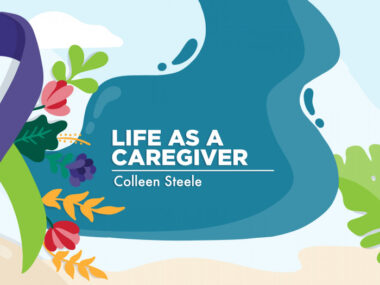Self-compassion linked with anxiety, depression in PH: Study
Not being kind to yourself associated with less health-related quality of life
Written by |

Self-compassion, the act of being kind to oneself, was a significant predictor of anxiety and depression in adults with pulmonary hypertension (PH), a questionnaire-based study reported. Self-compassion also predicted the burden of those who care for patients.
The findings suggest psychological and supportive interventions that build self-compassion are needed in PH, the researchers said in “Can self-compassion help us better understand the impact of pulmonary hypertension on those with the condition and their carers? A cross-sectional analysis,” which was published in Pulmonary Circulation.
People with PH, which is marked by high blood pressure in the blood vessels that supply the lungs, often experience breathlessness, fatigue, pain, exercise intolerance, and fainting. High rates of anxiety and depression have also been established with the disease.
Besides evaluating medical treatments, research is needed to identify factors that may reduce distress in people with PH, as well as their caregivers.
Self-compassion, sometimes called self-kindness, is the act of being kind to oneself by taking a gentle, accepting, and nonjudgmental approach to life, especially during difficult times.
Mindfulness is a technique associated with self-compassion, actively acknowledging and regulating thoughts and emotions, and taking a balanced perspective rather than fixating on or suppressing difficult emotions.
Although self-compassion has been examined in several conditions, it hasn’t been investigated in PH patients or their caregivers, leading researchers in the U.K. to assess the relationship between self-compassion and measures of psychological functioning in 65 adults with PH, mostly women (81.5%), and 29 caregivers.
Participants completed questionnaires on clinical factors, anxiety, and depression. Self-compassion was assessed using a 26-item survey regarding self-kindness or self-judgment, common humanity or isolation, and mindfulness or over-identification. Health-related quality of life (HRQoL) was also examined in patients, as was caregiver burden with a measure called emPHasis-10, specifically developed for people with PH.
Being kind to oneself and the effect on anxiety, depression
Scores for anxiety, as measured by the generalized anxiety disorder-7 (GAD-7) scale, and depression, using the patient health questionnaire-9 (PHQ-9), found no differences between patients and their caregivers, a result the authors found surprising. Younger participants and women were more likely to report greater anxiety.
About half the caregivers (51.7%) had mild to moderate levels of caregiver burden, as assessed with the 22-item Zarit burden interview. Moderate to severe levels were reported by 27.6%, and little or no burden by 20.7%.
No differences were seen between patients and caregivers regarding self-compassion scores. “Self-judgment was more commonly observed when compared to other self-compassion related behaviors,” the researchers wrote.
PH severity by functional class correlated with HRQoL, with worse severity associated with worse HRQoL.
Lower (worse) scores for self-compassion were associated with greater anxiety and depression and lower HRQoL, “suggesting the more self-compassionate an individual was, the fewer symptoms of anxiety and depression they reported in addition to better HRQoL,” the researchers said.
Specifically, negative subscales of self-compassion were all linked with psychosocial functioning, but none of the positive scales were related. Also, depression correlated with anxiety and HRQoL, as were anxiety and HRQoL.
Caregivers who provided care for extended periods and women caregivers reported greater levels of burden. Here, less self-compassion was associated with more depression, anxiety, and burden.
Subscales of self-compassion related to isolation and over-identifying were significantly correlated with all measures. Positive self-compassion traits, such as self-kindness and common humanity, were associated with less anxiety. Among caregivers, depression was related to anxiety and caregiver burden, as were anxiety and caregiver burden.
After adjusting for age, sex, and years with PH, self-compassion was a significant independent predictor of anxiety and depression in people with PH, statistical data analysis showed. When self-compassion was added to the calculation for anxiety and depression, age, sex, and years of diagnosis no longer remained significant.
Self-compassion significantly predicted anxiety and caregiver burden, but not depression, further analysis found. After adjusting for sex and years of providing care, self-compassion remained predictive of caregiver burden.
“These findings add to the evidence base indicating that there can be a range of burdens experienced by both people living with PH and their wider families,” the authors wrote. “Further, this study uniquely suggests that psychological and supportive interventions that seek to build self-compassion may be useful to develop and test in this clinical group.”



